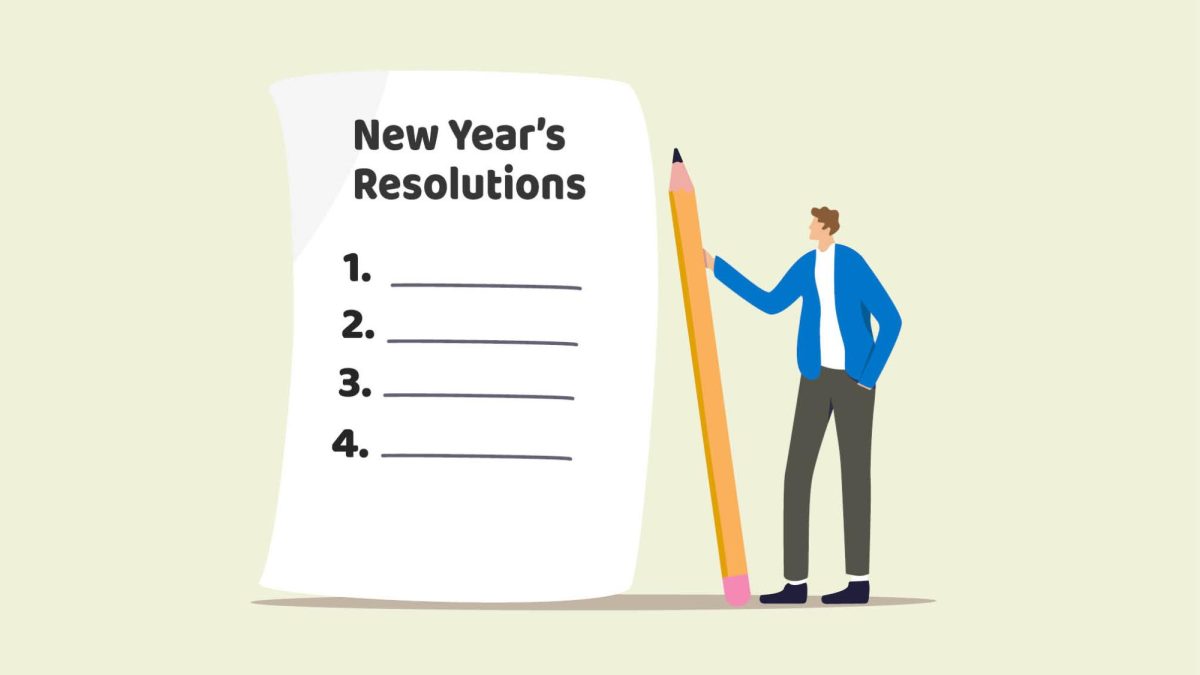I am fairly certain that we have all seen people talk about how they want to do “x, y and z” with the approach of an upcoming year. Whether it is your parents, friends, siblings, other students, coworkers, or even you yourself, as the years end we have all fallen into a cycle of desire for improvement. It seems like society is increasingly treating New Years as more of a reset button. As long as the button is clicked as the countdown to the new year approaches, they are given another chance or opportunity to correct things. But why are New Year’s Resolutions so hard to keep? The first month goes fine, but starting February people are observed giving up on their goals, pushing the goal back yet another year, and the year after that yet another prolonging of the same old pattern. What causes the initial month to go so well, only for motivation to dwindle exponentially? Is there a way to counteract this natural progression?
When one first resolves to pursue a goal, dopamine is sent off in the brain. Dopamine has recently become a well-known term, but for formality’s sake, let me define it in a simple way: It is a hormone that helps control the brain’s reward and pressure centers, as well as regulate emotional responses. The problem with dopamine, however, is that your brain continually seeks more of it. This means that after the initial drive of dopamine, your brain will try to look for more ways to achieve more, meaning that those New Year’s Resolutions will slowly give you less and less dopamine.
But as mentioned earlier, what if the notion of a fresh beginning also brings about dopamine, not only the starting of a resolution? If people get motivated during New Years because of the prospect of bettering themselves coupled with the idea of the new year giving a dopamine rush, what would happen if these two aspects were treated separately? This is what I’ve seen more and more people start to do. Instead of starting their resolutions in January, they start them in December. They continue the habit for all of December, riding the dopamine that comes from the idea of improving themselves, and when the dopamine hits a low, the New Year arrives, offering a new round of motivation of wanting to start the year strong. This means that whatever they wanted to improve on becomes a habit, as it takes about 60 days to form a habit, and the resolution has successfully become a part of their life.
I have also been on the bandwagon of New Year’s Resolutions and, very much like others, have also initiated many goals, only to leave them by the time February rolls around. However, I believe this new reasoning to resolutions definitely holds potential, and I am interested in trying it. What do you think of this new method? Do you approve or disapprove of it? Do you have any New Year’s Resolutions in mind for 2024? Will you be trying this new method this December?
If you do take some fascination with this method and want to try, but don’t know where to start, here are some suggestions:
- Try starting a gratitude journal.
- Learn some new recipes: make it a challenge to cook something new every month or even every week, if you’re feeling committed.
- Clean your space every week instead of waiting to clean it for only when it gets messy.
- Stick to a workout schedule: whether it is going to the gym at least 3 times a week or walking a certain amount of steps each day, prioritize moving and taking care of your body.
- Develop a green hand: make it a goal to take care of at least one plant every season.
Regardless of whether you try this new trend or not, I hope you have learned something new and will consider the idea of developing some resolutions for yourself to achieve for the upcoming year!

